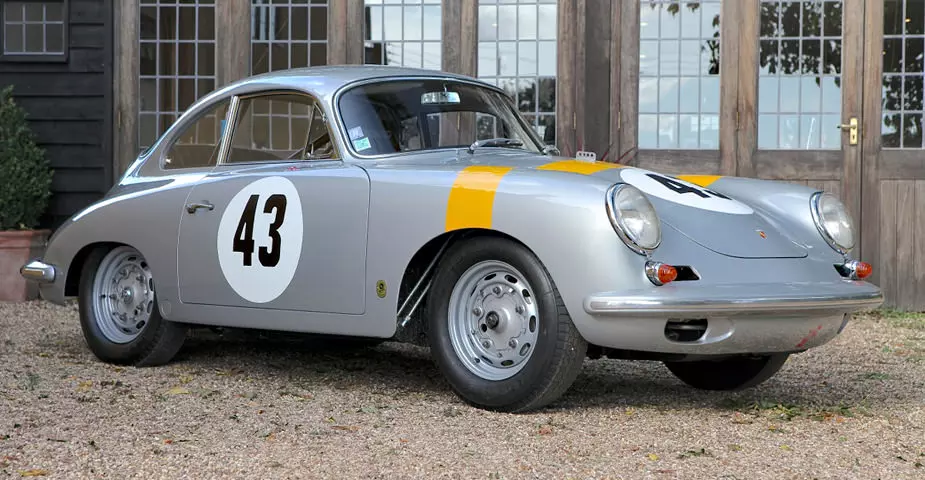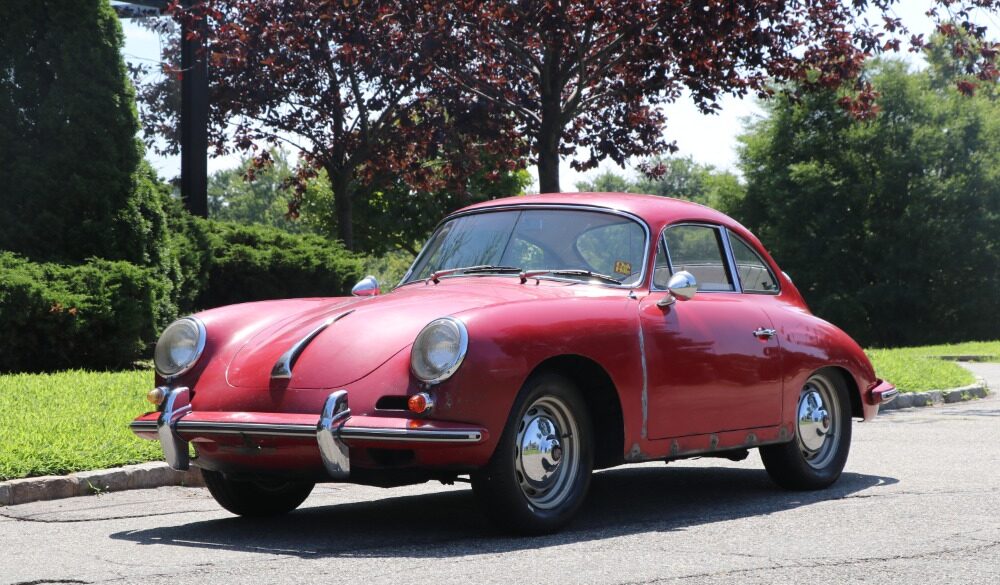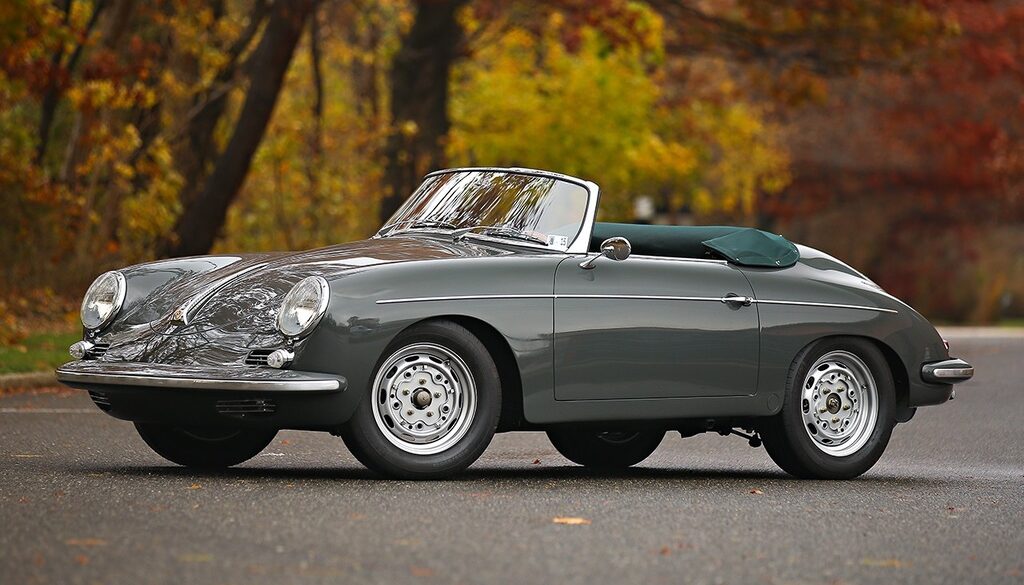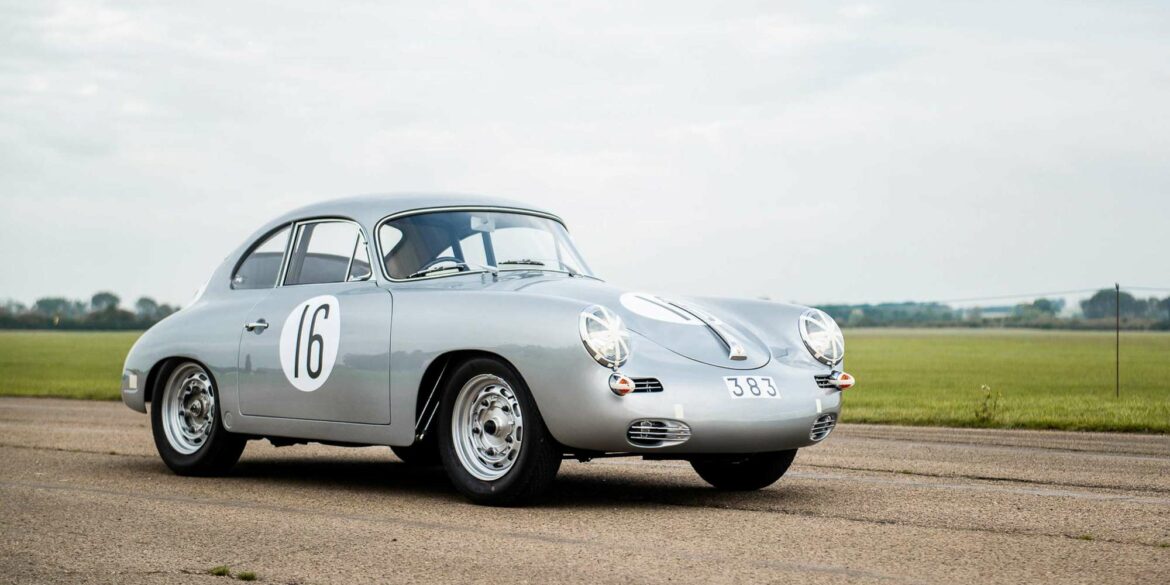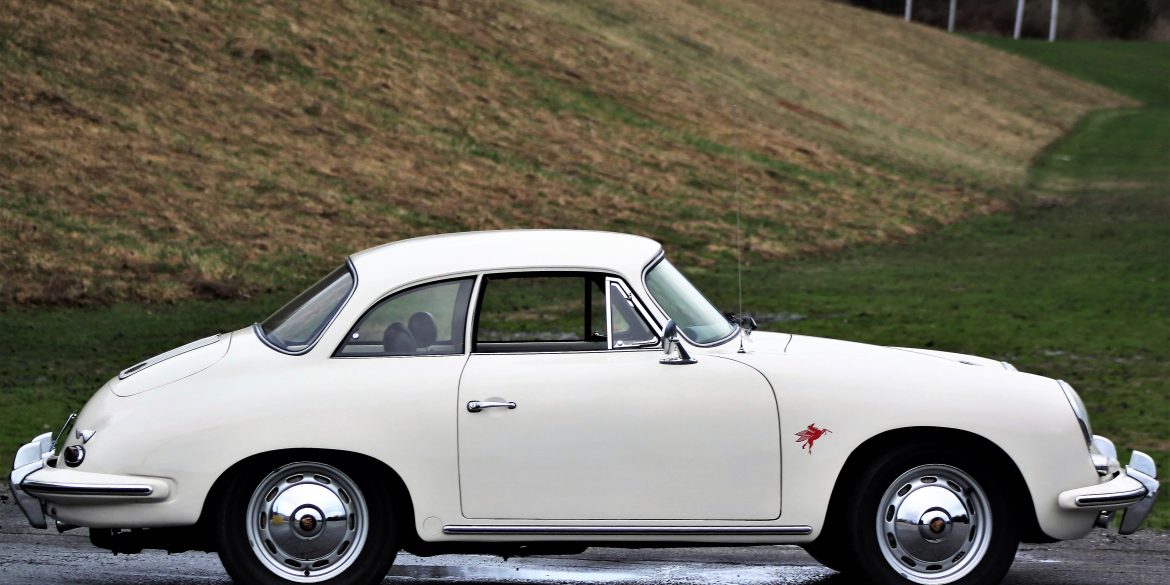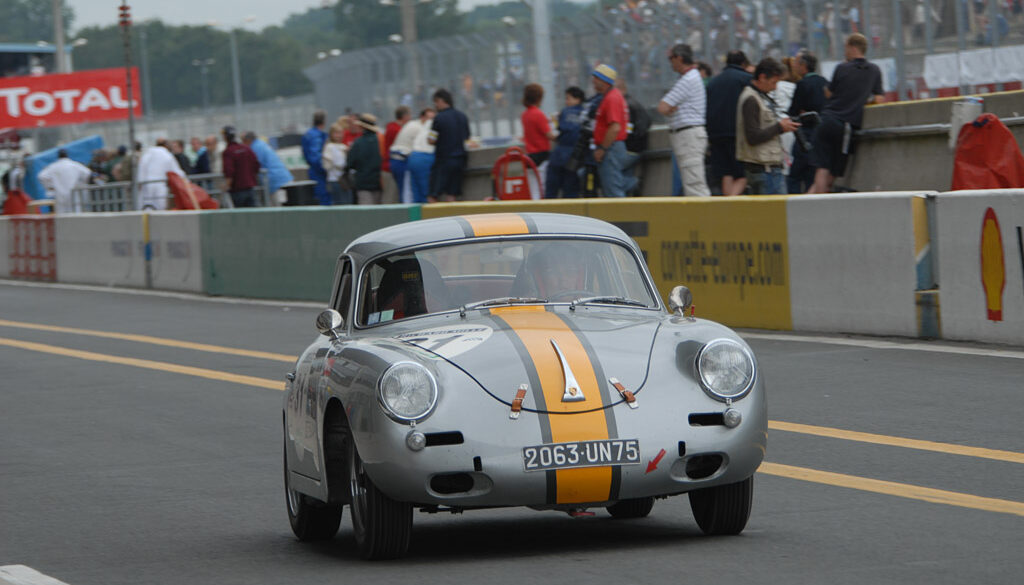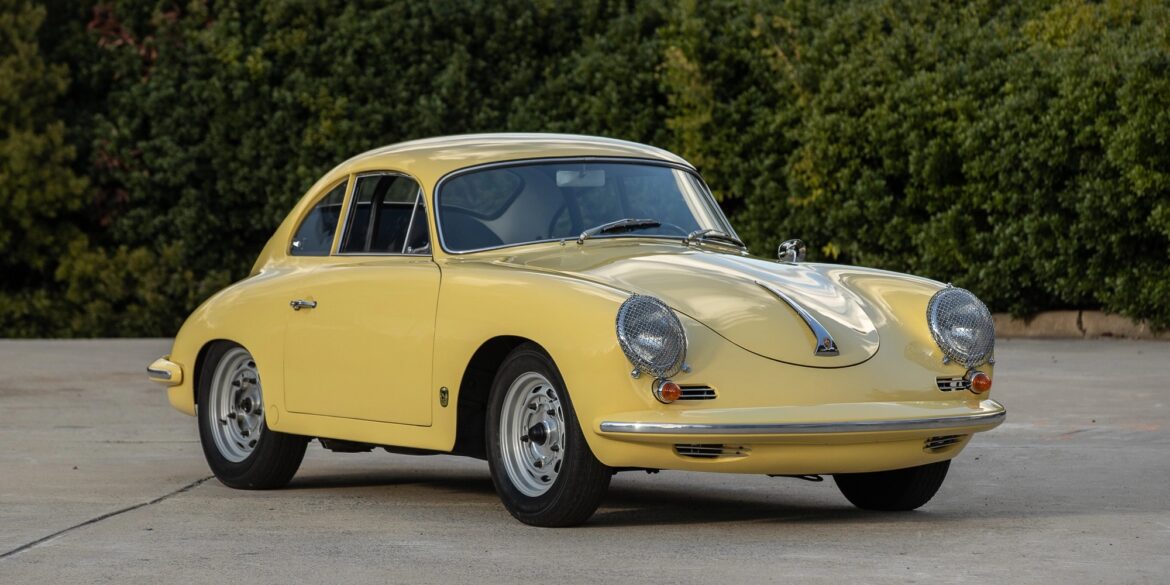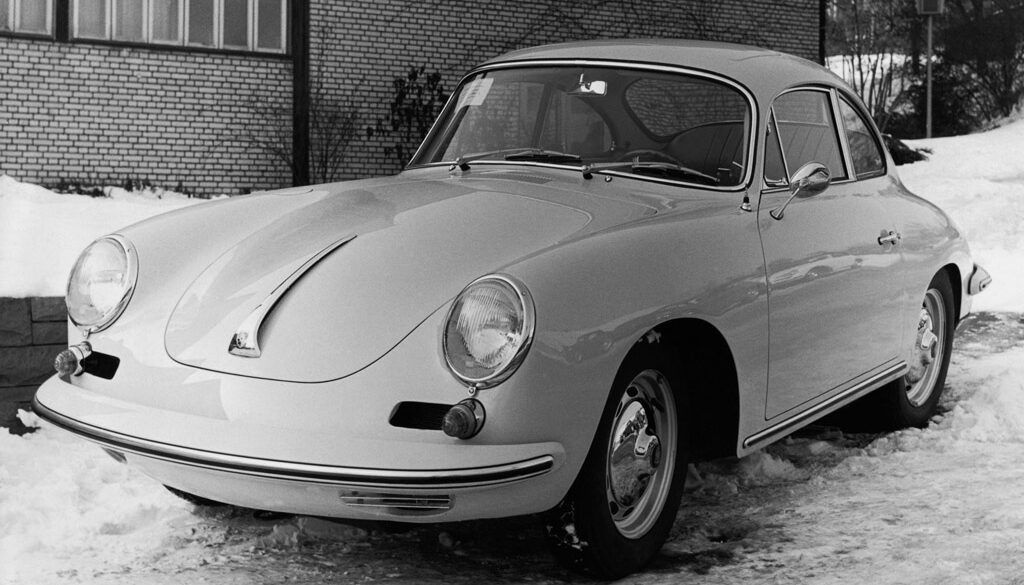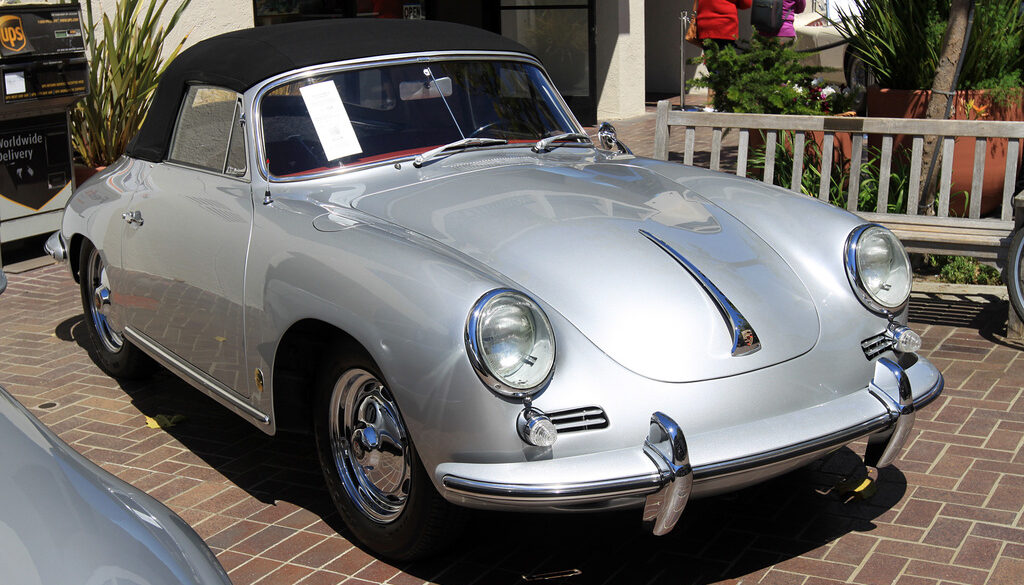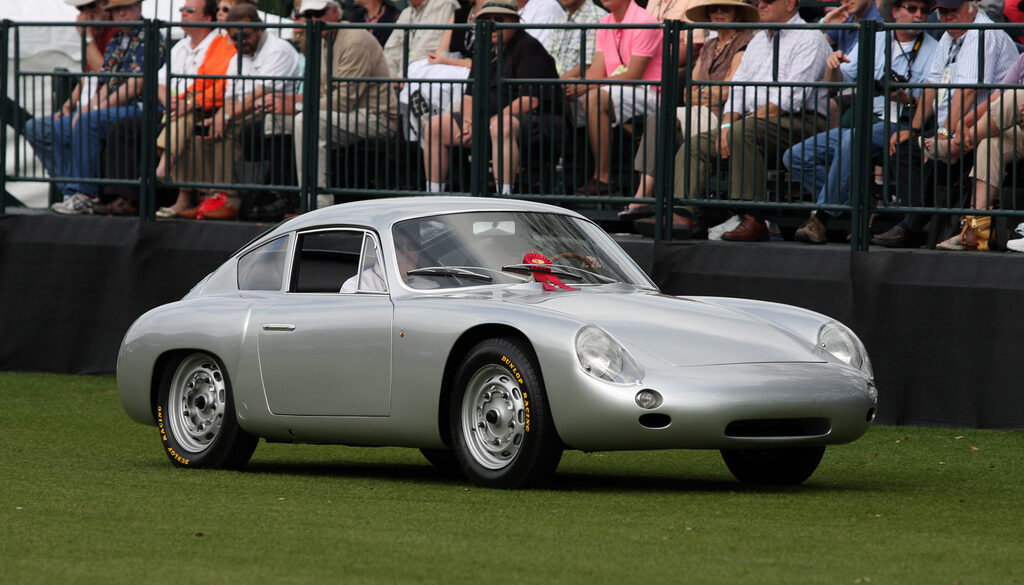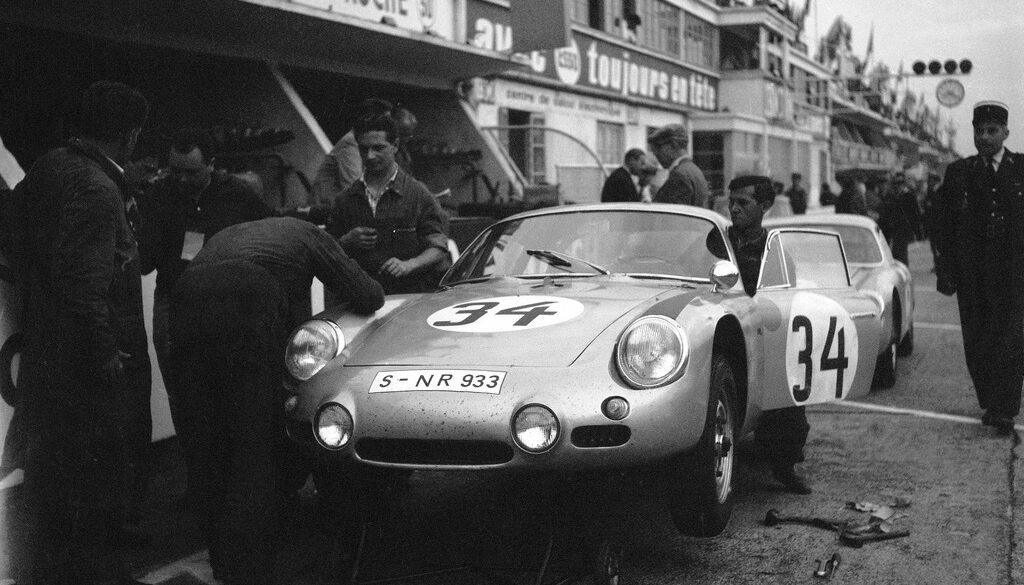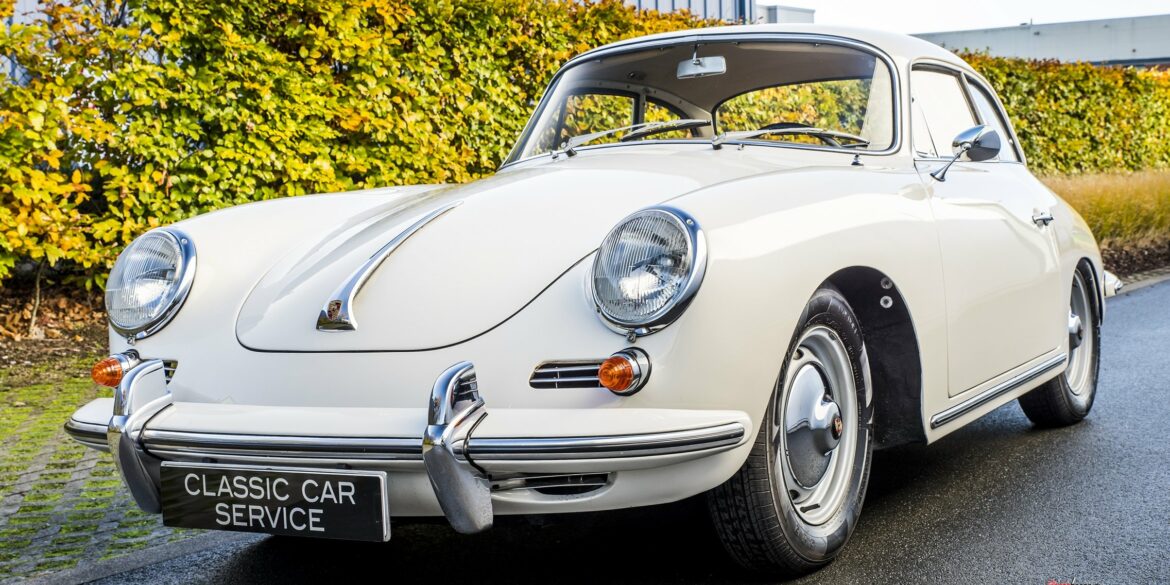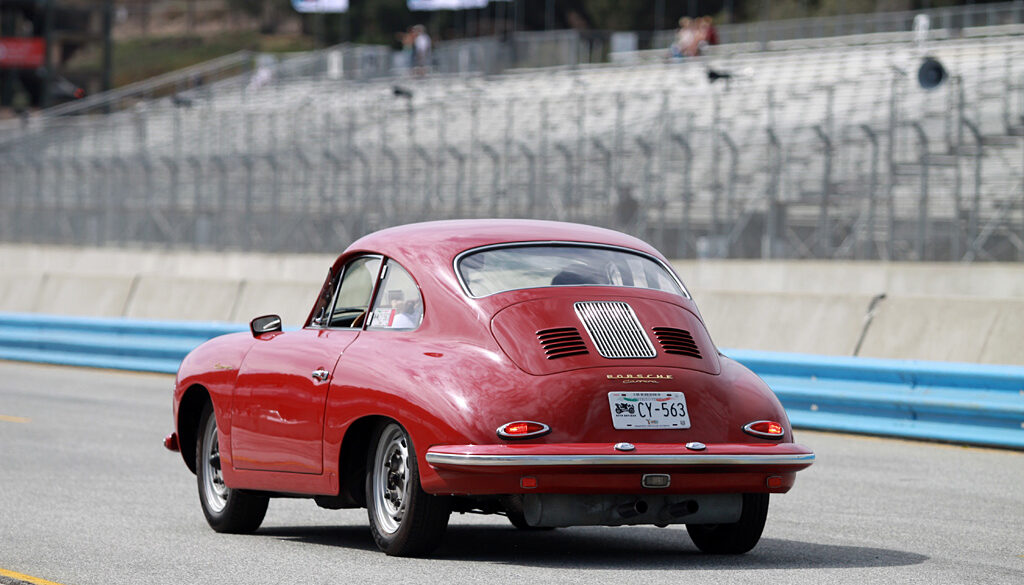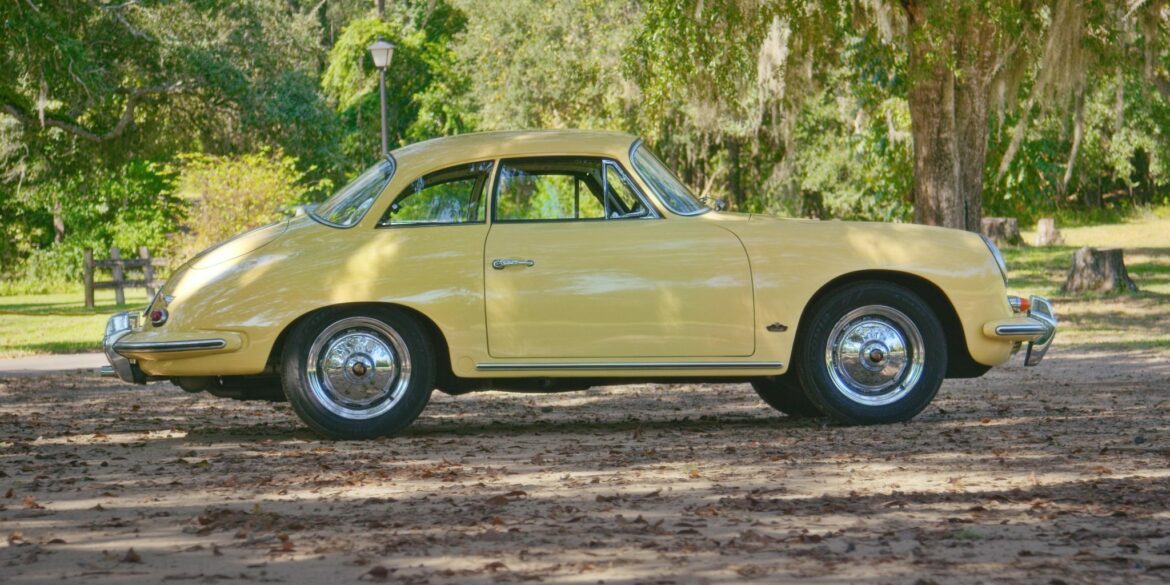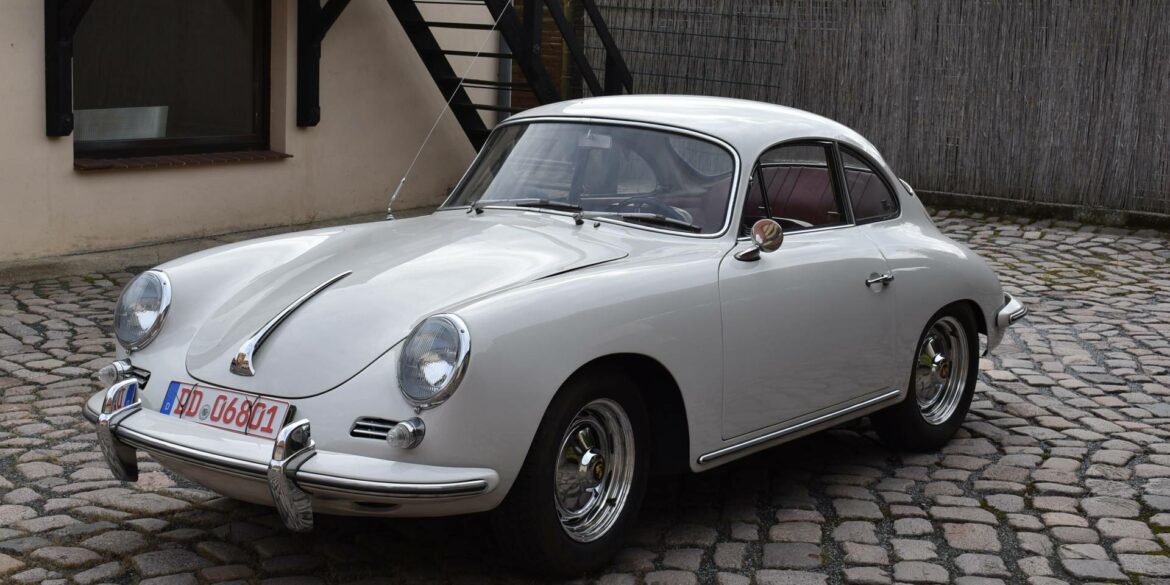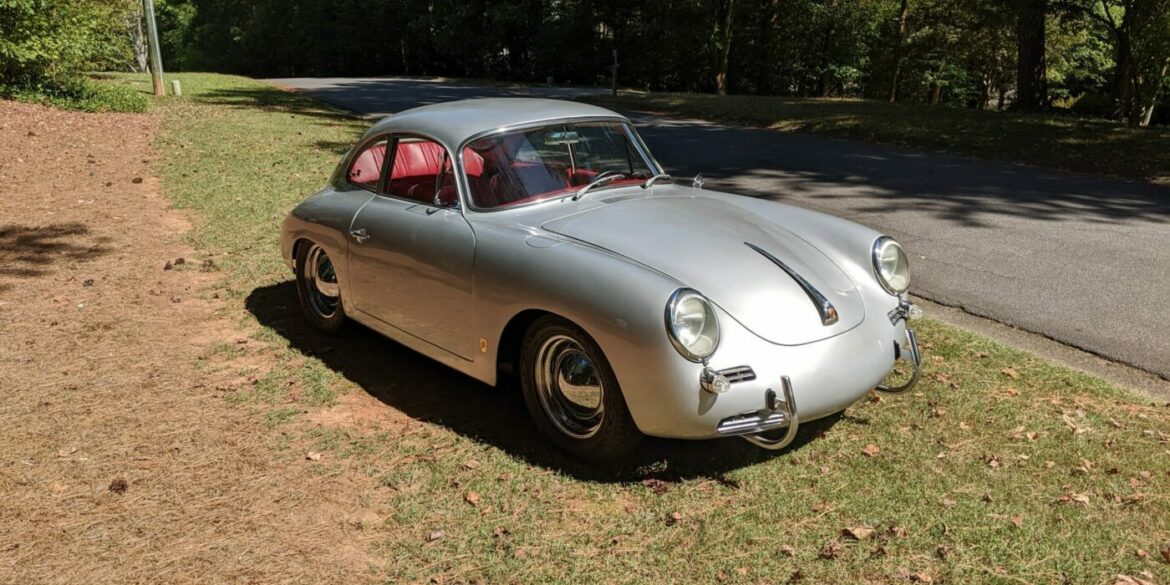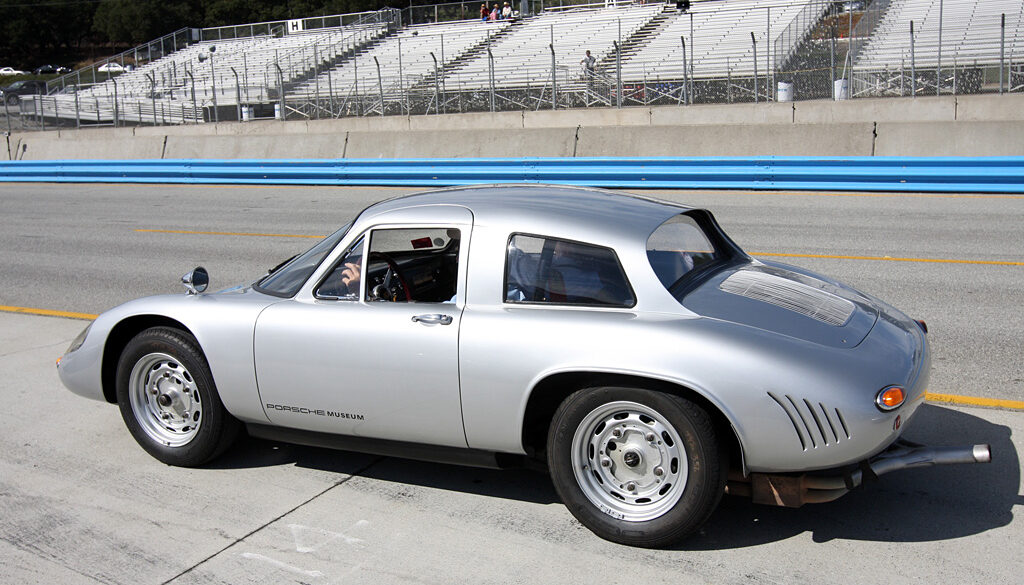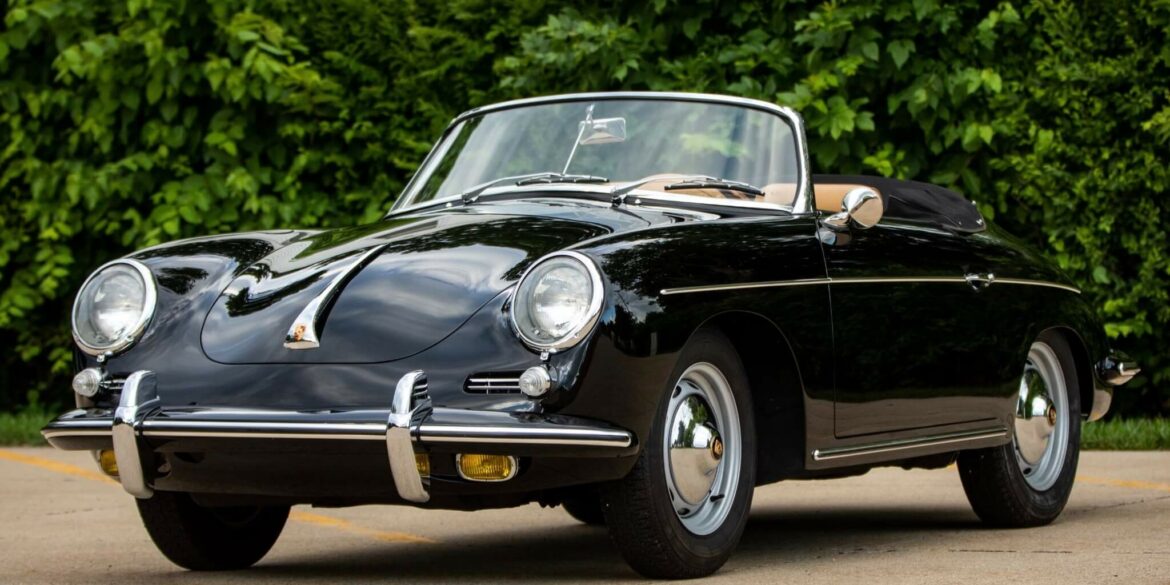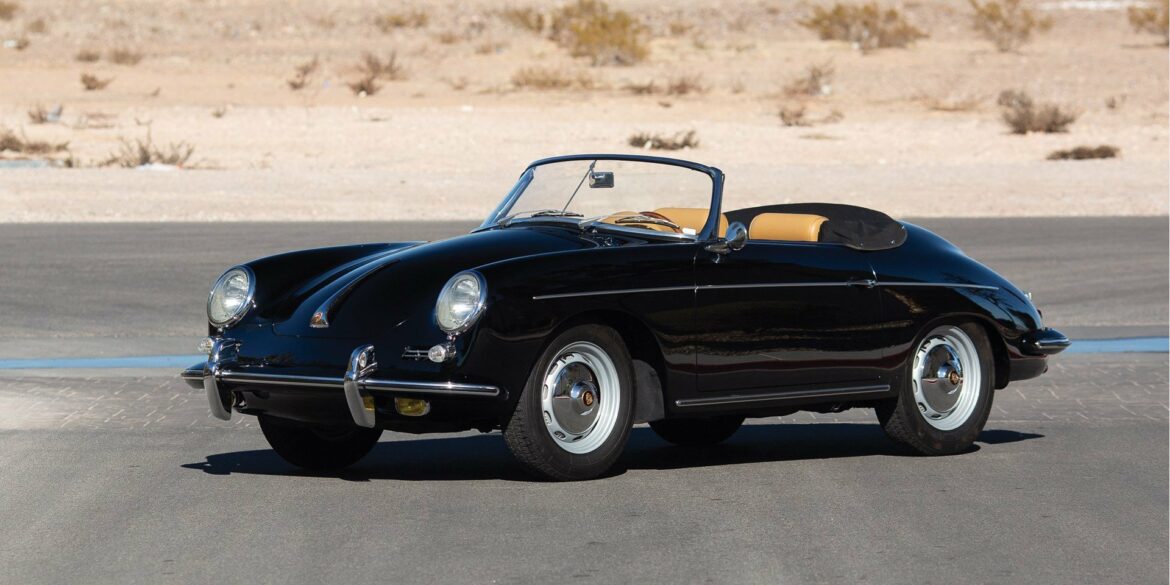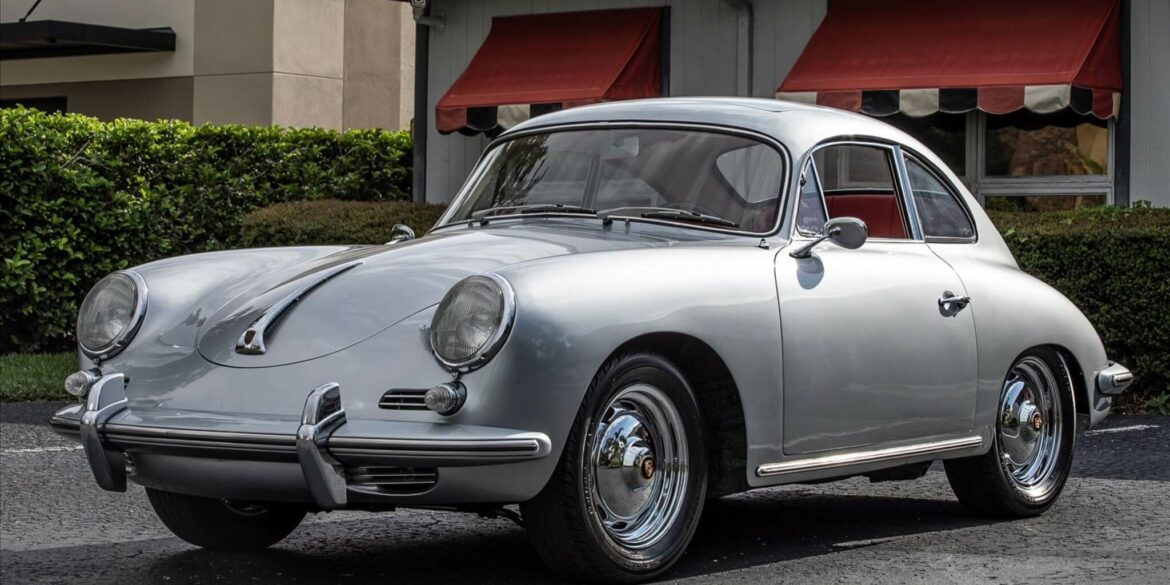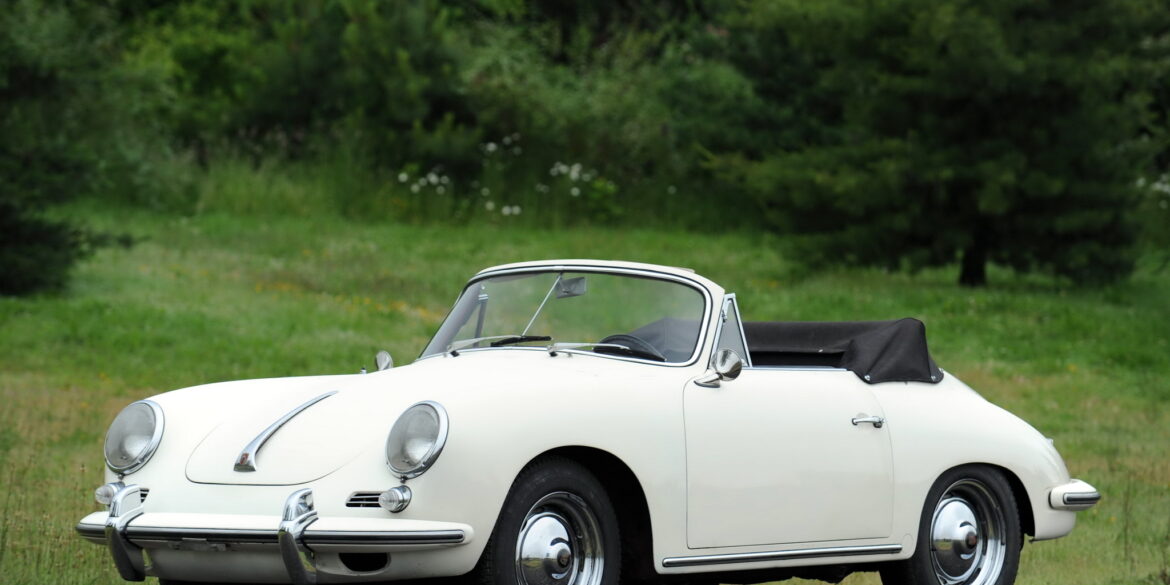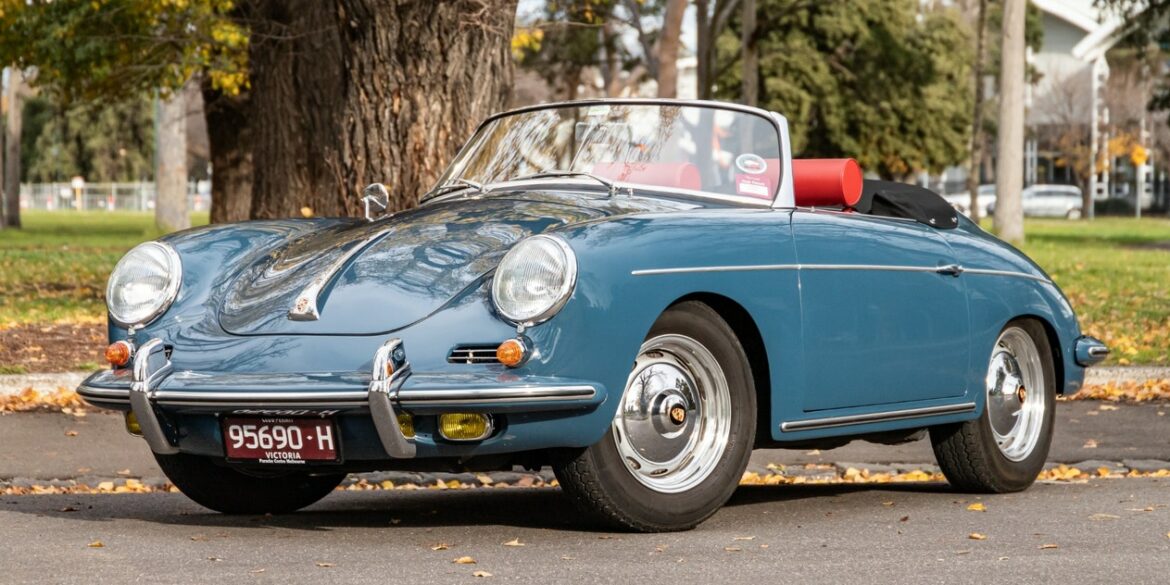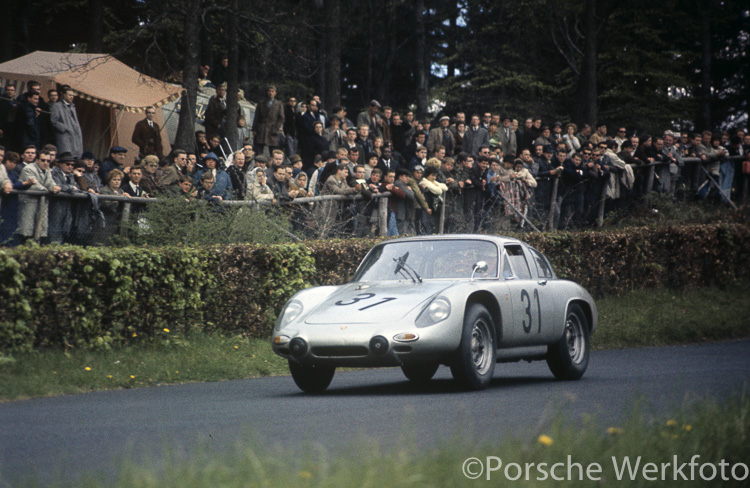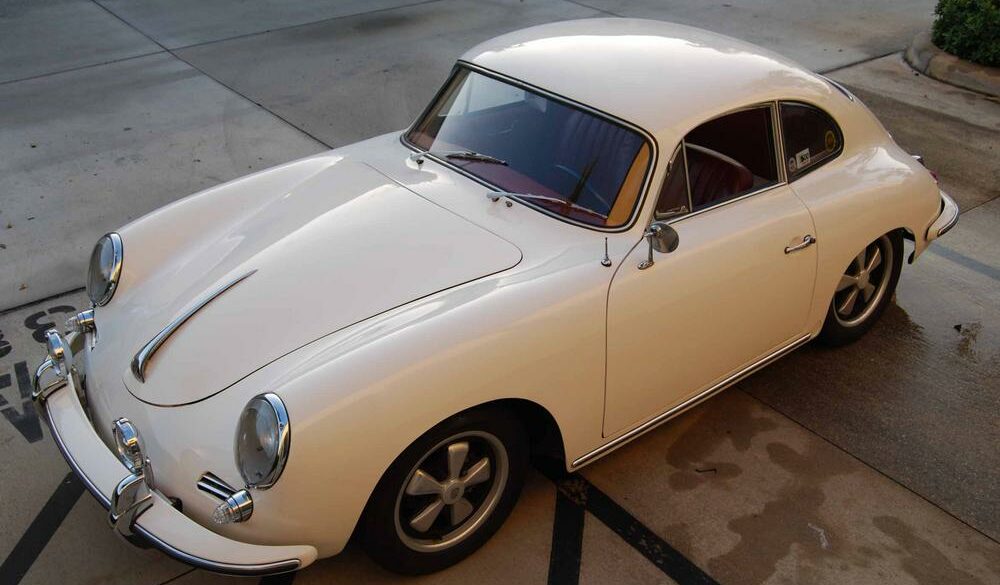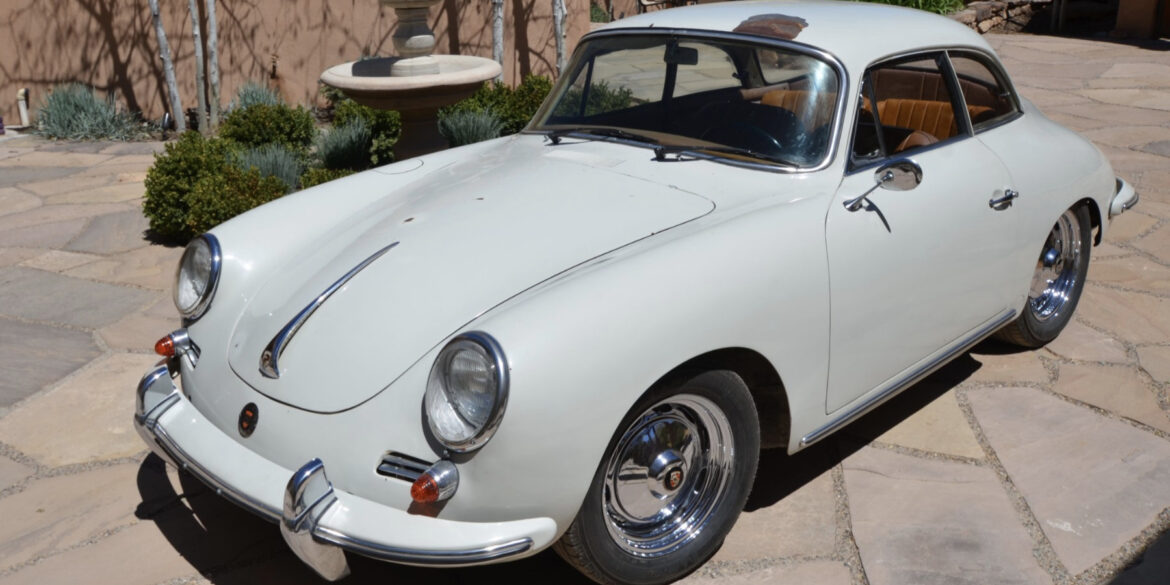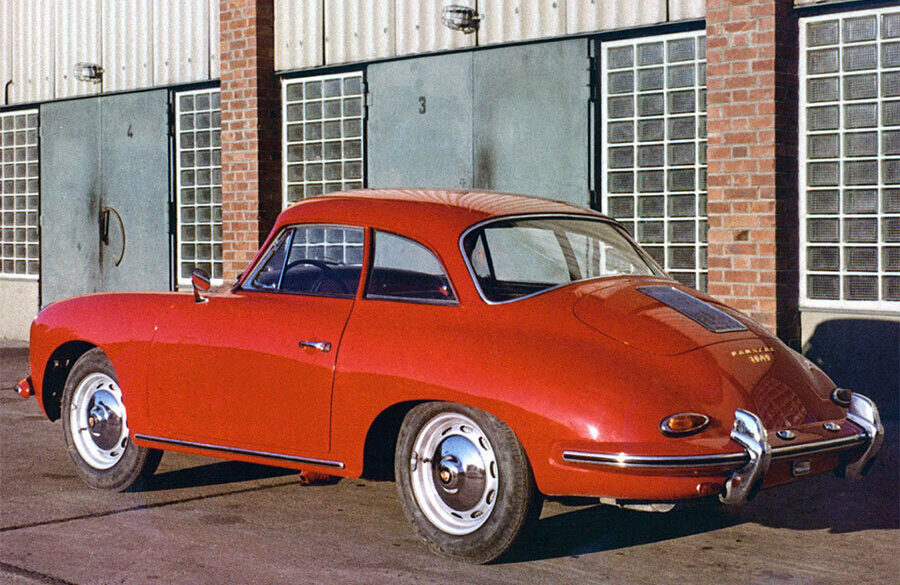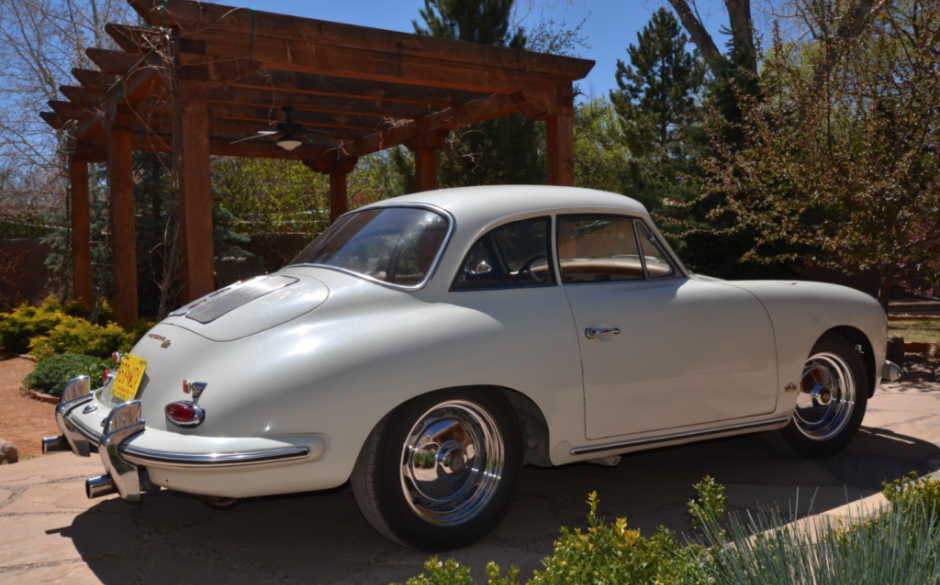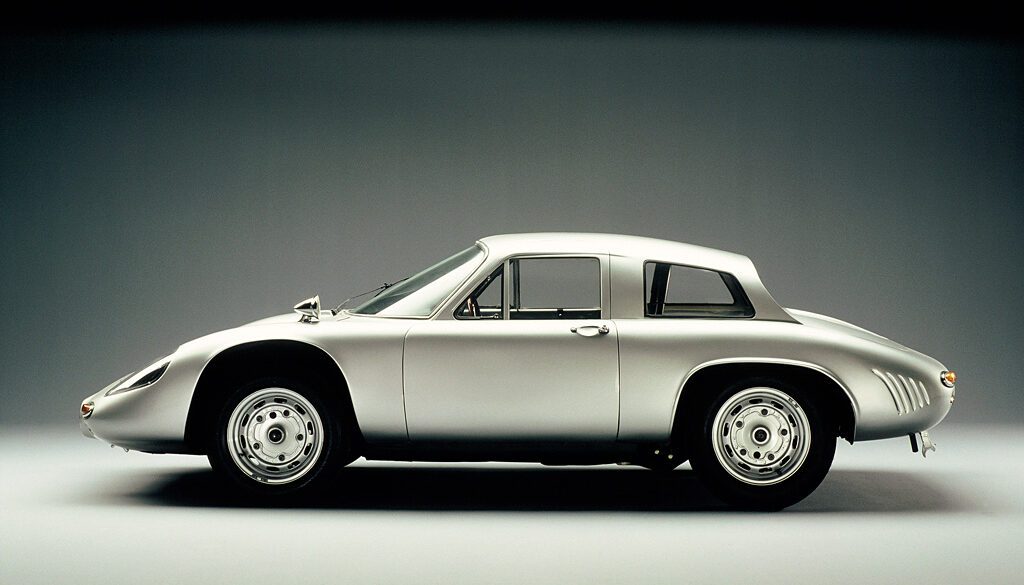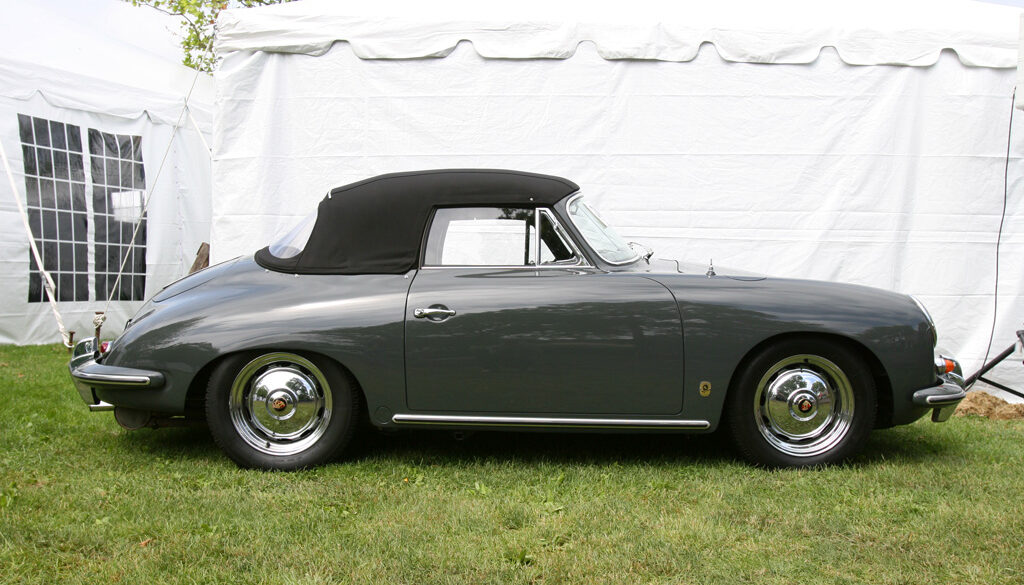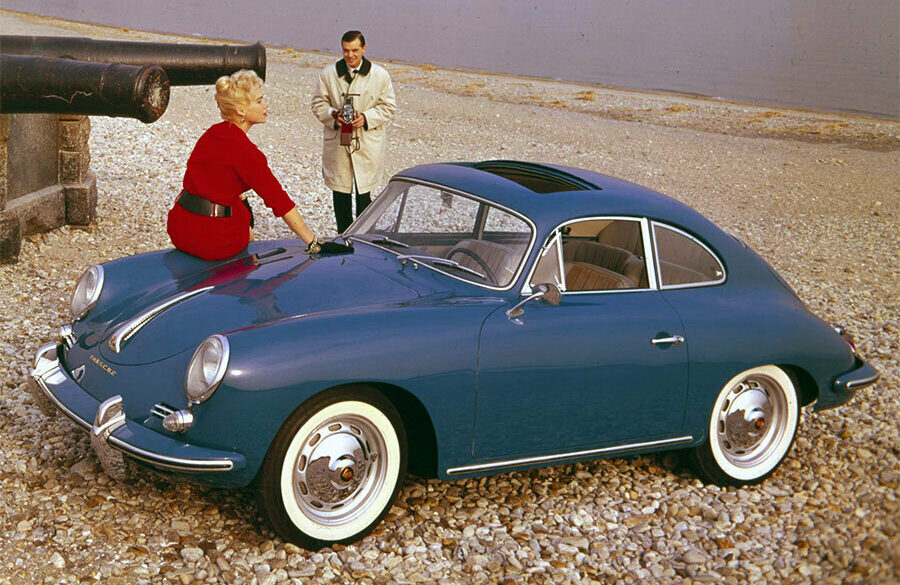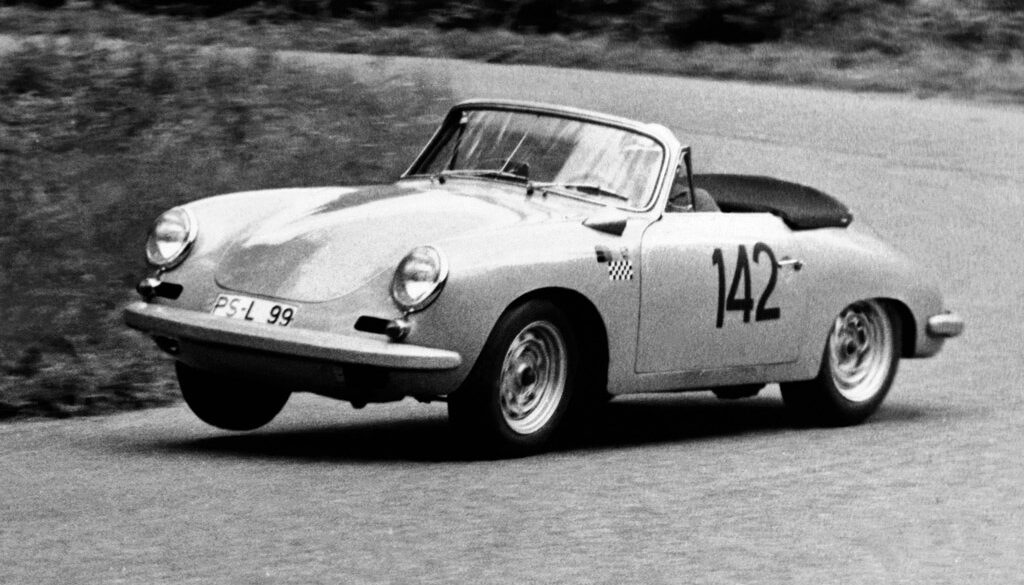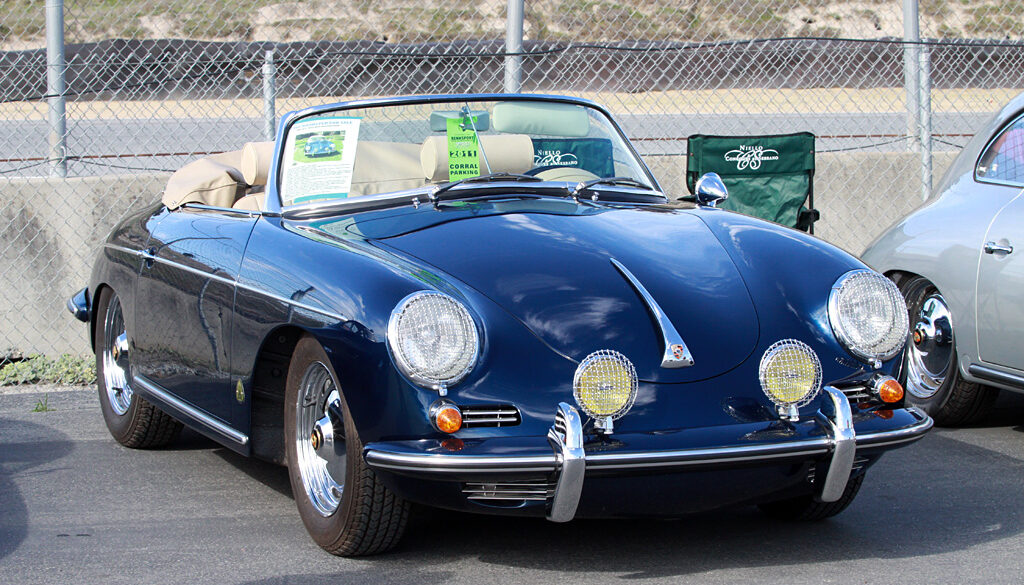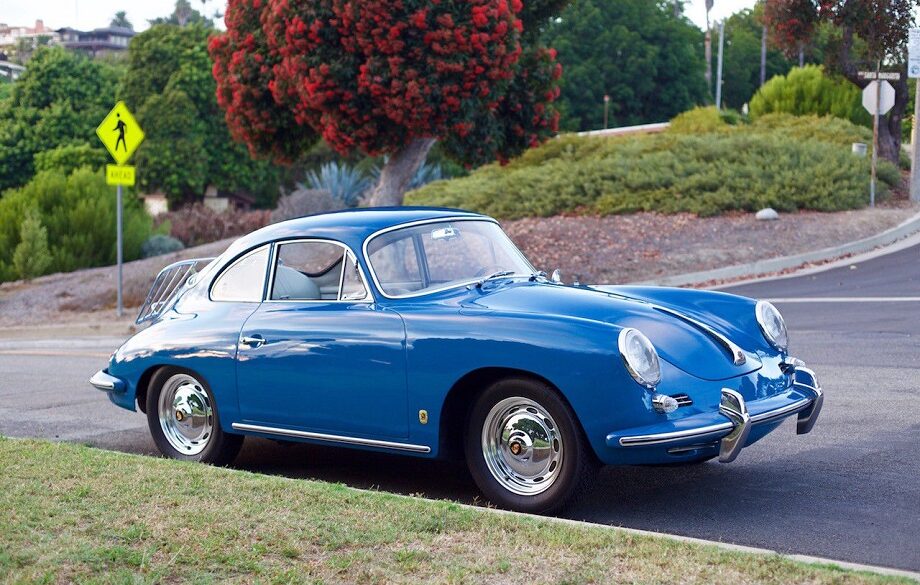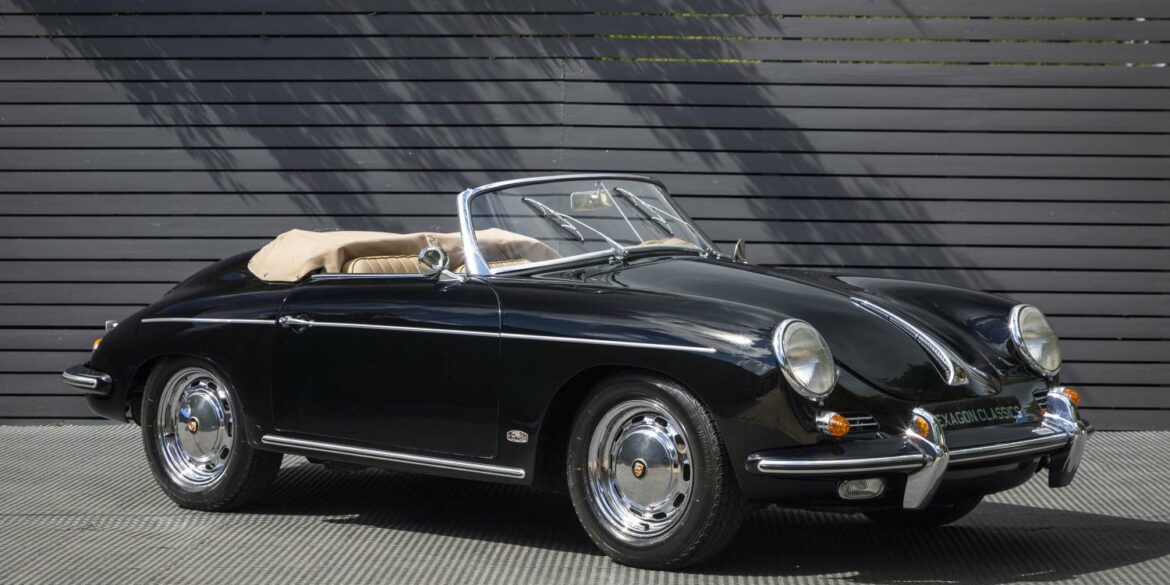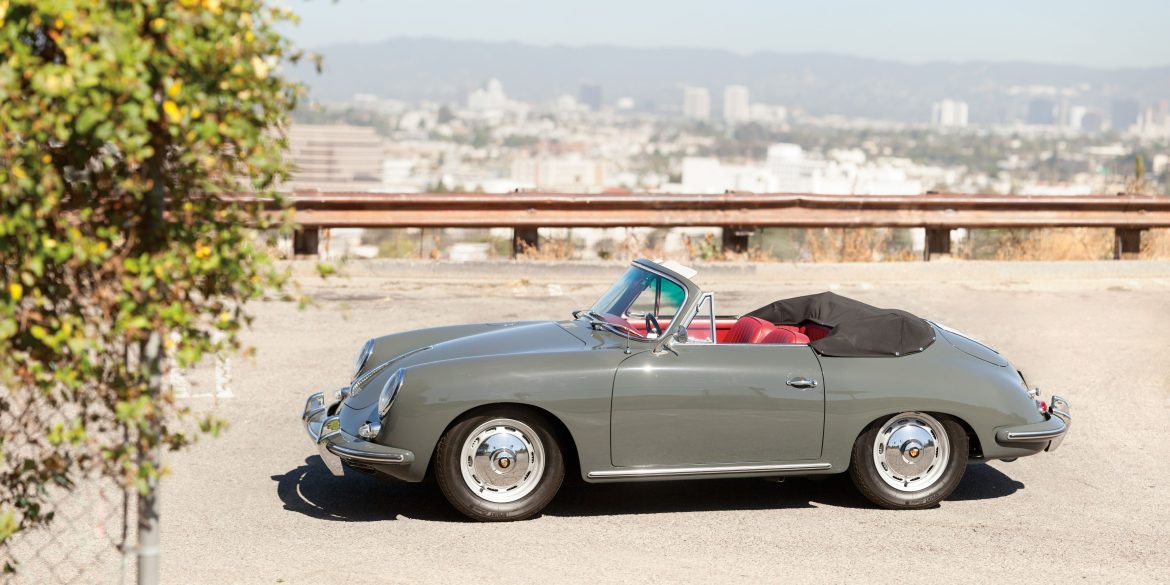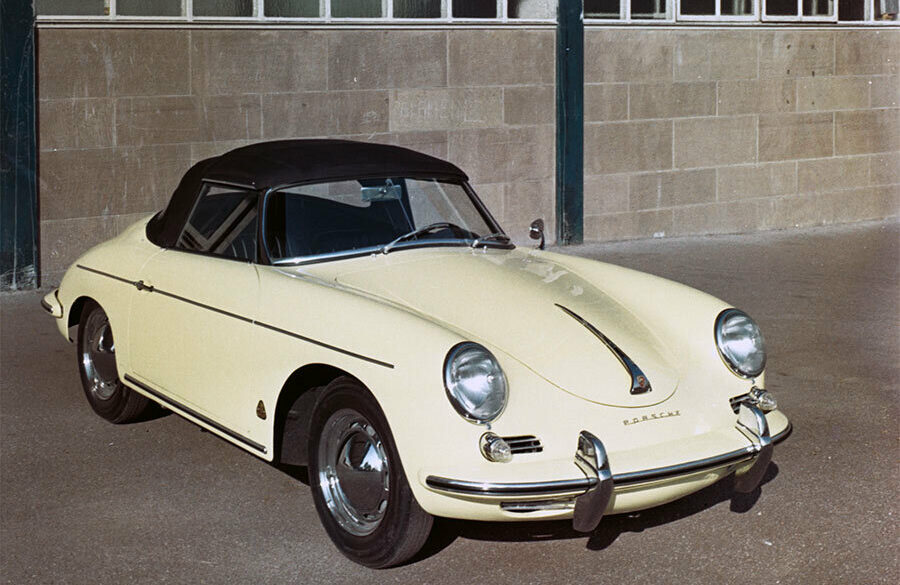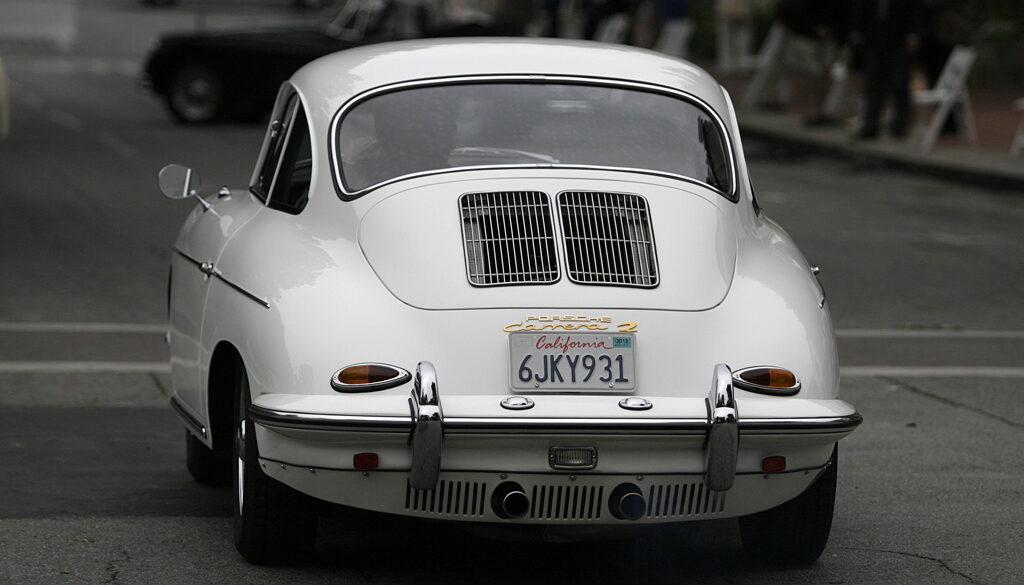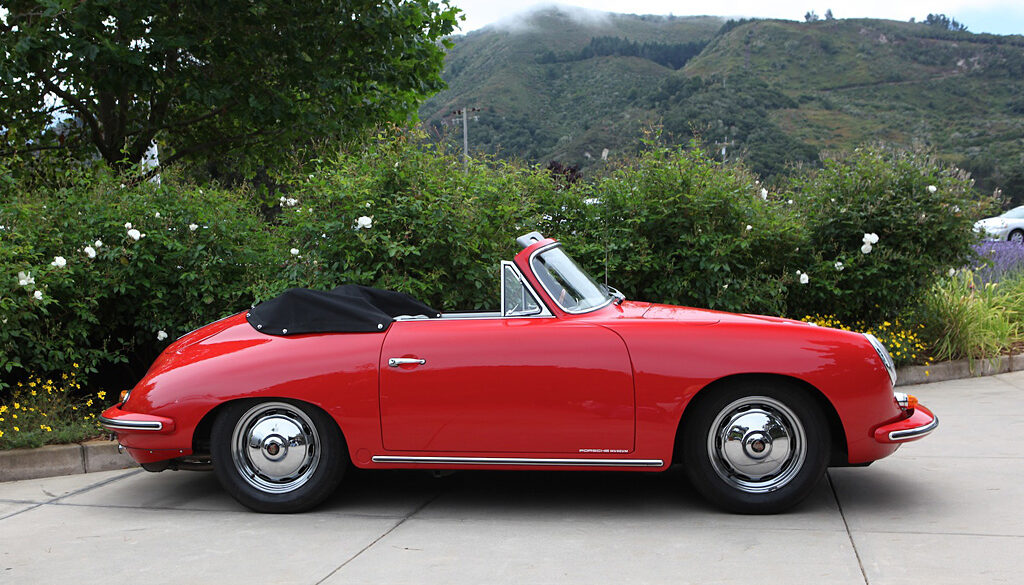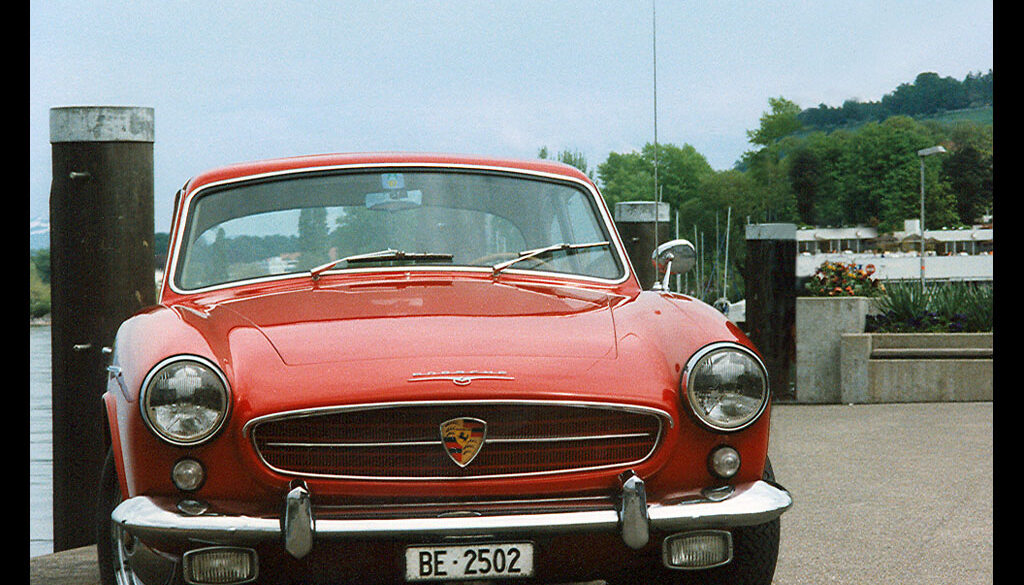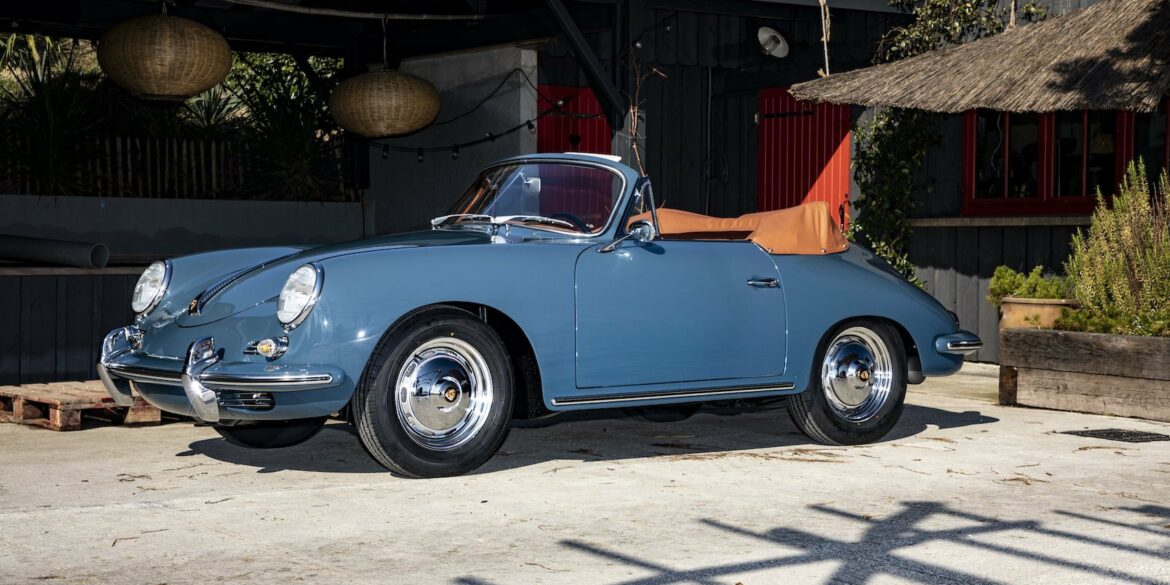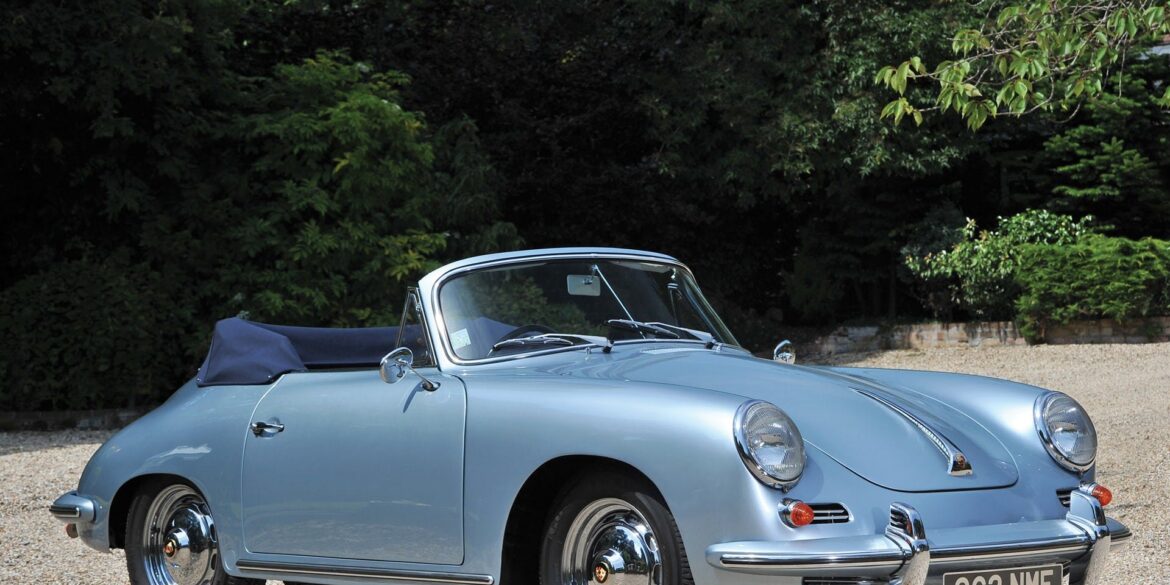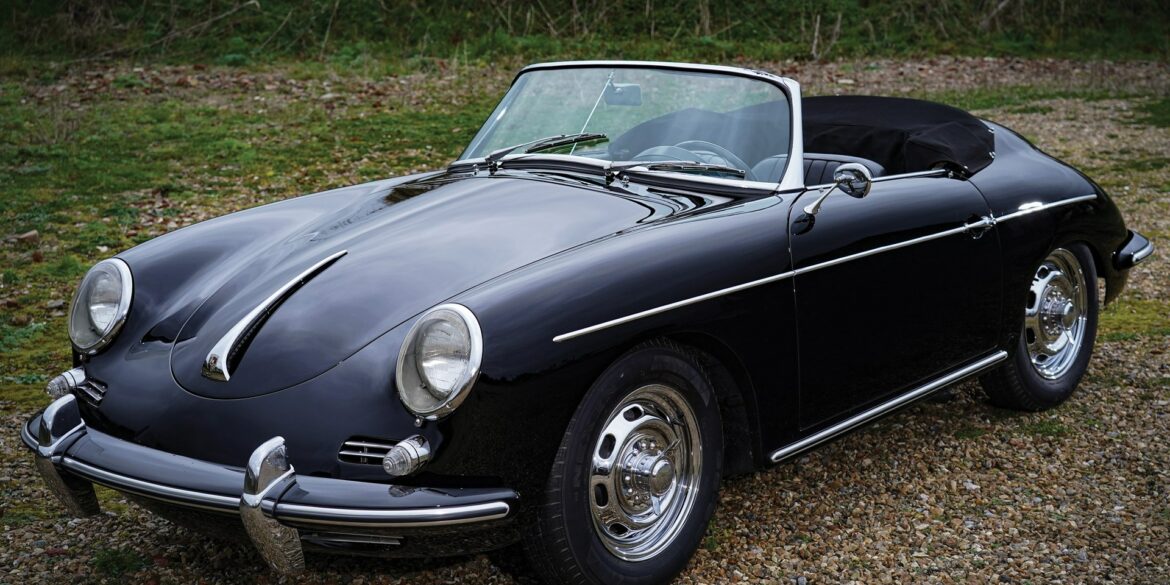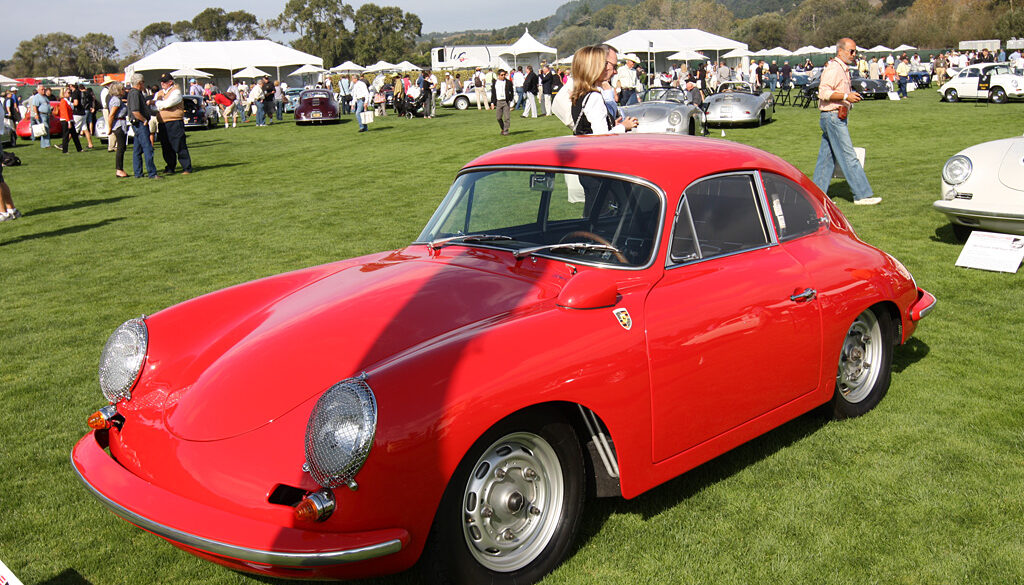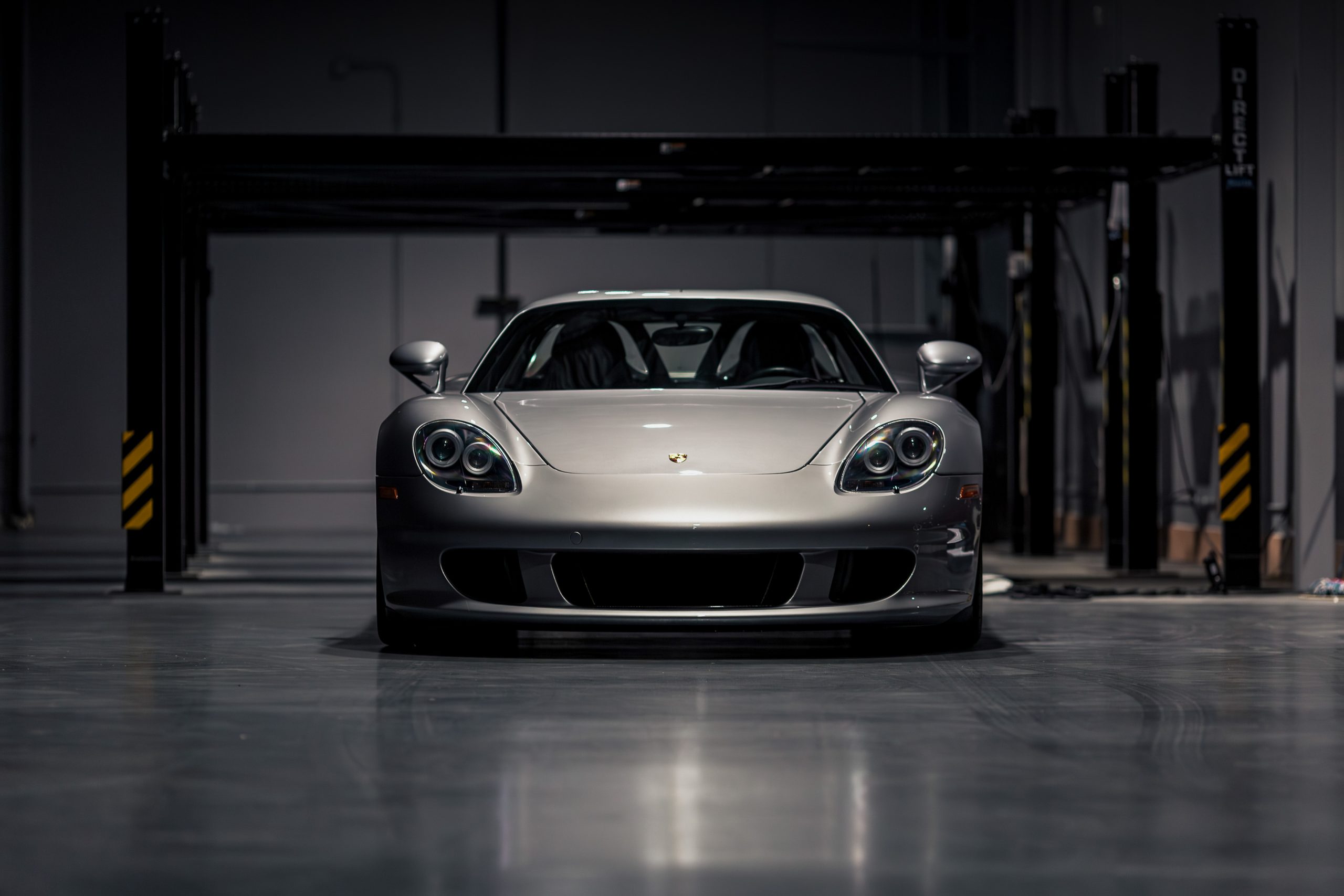Around 20 Super 90 Coupes were ordered with the lightweight GT package for racing. They used aluminum panels, a lightweight interior and plexiglas windows to shed over 200 lbs off the standard production coupe. Inside the car came equipped with a roll bar, leather-strap window lifts and speedster seats. Aluminum exterior panels included the doors, hood, rear deck lid.
No Subscription? You’re missing out Get immediate ad-free access to all our premium content. Get Started Already a Member? Sign in to your account here....
No Subscription? You’re missing out Get immediate ad-free access to all our premium content. Get Started Already a Member? Sign in to your account here....
While all 356 Carreras are rare and desirable cars, the 1961 B Carrera GT is a very special animal indeed. Built from lightweight materials and sporting Porsche’s most powerful racing engine of the time, they were in a different league to the most highly specified road car that the Stuttgart factory then produced. Porsche produced only 49 of the 356B Carrera versions for 1960/61 and all were coupes. Many were painted Silver.
1959 – 1963 Porsche 356B/1600 S Notchback Coupe Pictures & Gallery...
1959 – 1963 Porsche 356B/1600 Coupe Pictures & Gallery...
For decades, Porsche has established itself as a renowned car manufacturer, celebrated for its adaptability and agility. It has consistently catered to the desires of racing enthusiasts and discerning clients by creating special versions of their beloved cars. During the early 1960s, the 356s were no exception to this tradition....
After a considerable absence of a Carrera model in the 356 model lineup, Porsche finally made another version with the introduction of a 2.0-liter engine. As with the earlier versions, the Carrera was offered both in a Carrera GT Deluxe version for the road and the Carrera GT for racetrack duties. Unlike these earlier models, the new car benefited from the 2.0 liter engine introduced as the Carrera 2 in September 1962.
1959 – 1963 Porsche 356B/1600 Cabriolet Pictures & Gallery...
1960 – 1961 Porsche Abarth 356B Carrera GTL Pictures & Gallery...
In keeping with FIA regulations, Porsche created a new lightweight 356 with help from Abarth. After Porsche had considered numerous Italian companies to manufacture a lightweight 356 body, they settled on Abarth. Franco Scaglione penned the first initial drawings which attempted to reduce frontal area, overall height. Included was an adjustable scoop on the rear deck lid. Made entirely of aluminum, Abarth's body was smaller than the Reutter 356.
No Subscription? You’re missing out Get immediate ad-free access to all our premium content. Get Started Already a Member? Sign in to your account here....
1962 – 1963 Porsche 356B/2000GS Carrera GT Pictures & Gallery ...
1959 – 1963 Porsche 356B/1600 Notchback Coupe Pictures & Gallery...
1959 – 1963 Porsche 356B/1600 Super 90 Coupe Pictures & Gallery ...
A Beautiful Example With a Red Interior The Porsche 356B Coupe is a car that stands out in many people’s minds as an iconic Porsche model. It’s one that is easy to love and they’re not wildly expensive as far as collector cars go. Really good ones can reach well...
1963 Porsche 356B/2000GS Carrera 2 GT Dreikantschaber Pictures & Gallery...
In September of 1959 Porsche revealed their fully updated 356 known as the 356B. This had a completely revised body that was more suitable for the American market. The 1600 Super was also known as the 1600 S and that is what we are covering on this page. The 1600 Super sat in the middle of the lineup, below the Super 90 and above the base 1600. There were several variants with the base 1600 S engine, including the Coupe, Cabriolet, Notchback Coupe and Roadster, across both the T5 generation and T6 generation.
No Subscription? You’re missing out Get immediate ad-free access to all our premium content. Get Started Already a Member? Sign in to your account here....
PCarMarket is currently offering a 1960 Porsche 356B Sunroof Coupe that has been restored by its previous owner before it was bought by its current owner. It also got an engine rebuild in 2020 by Heritage Motorcar Research Inc. The car is finished in Silver Metallic and sports an optional...
1959 – 1963 Porsche 356B/1600 Super 90 Cabriolet Pictures & Gallery ...
1959 – 1963 Porsche 356B/1600 Super 90 Roadster Pictures & Gallery...
One of the most confused of all Porsche is this DKS or Dreikantschaber. It might appear like a mid-engine RS61 Coupe, but it is a rebodied 356B with a rear-mounted engine. Unlike the earlier 356s, this one featured fared-in driving lights and cut-off greenhouse reminiscent of of the RS61 coupe. Porsche didn't give this new a car a name since it was homologated and considered a Carrera 2 by the FIA. It was nicknamed Dreikantschaber.
1959 – 1963 Porsche 356B/1600 S Coupe Pictures & Gallery...
1961 – 1963 Porsche 356B/1600 Super 90 Notchback Coupe Pictures & Gallery...
No Subscription? You’re missing out Get immediate ad-free access to all our premium content. Get Started Already a Member? Sign in to your account here....
No Subscription? You’re missing out Get immediate ad-free access to all our premium content. Get Started Already a Member? Sign in to your account here....
No Subscription? You’re missing out Get immediate ad-free access to all our premium content. Get Started Already a Member? Sign in to your account here....
No Subscription? You’re missing out Get immediate ad-free access to all our premium content. Get Started Already a Member? Sign in to your account here....
No Subscription? You’re missing out Get immediate ad-free access to all our premium content. Get Started Already a Member? Sign in to your account here....
The 356 B T5 Coupe was the direct replacement of the Porsche 356 A Coupe. The T5 Coupe bodies were produced by German coachbuilder company Reutter. The 356 B T5 Coupe played a huge role in the growth seen by Porsche in the early 1960s. Like the Cabriolet, Roadster, and Notchback Coupe siblings, the Coupe was offered with 1600, 1600S, S90, and Carrera engine options paired to a four-speed synchromesh 741 transmission. In late 1961, Porsche introduced the T6 body and updates, which built on the success of its very popular predecessor.
As with the earlier versions, the Carrera was offered both in a Carrera GT Deluxe version for the road and the Carrera GT for racetrack duties. Unlike these earlier models, the new car benefited from the 2.0 liter engine introduced as the Carrera 2 was unveiled in September 1962. The 2.0 Carrera used a variant of the Type 547 engine with a larger bore and stoke, having 1966cc.
1959 – 1963 Porsche 356B/1600 Roadster Gallery Porsche 356 B 1600 Roadster (T5) – Pictures & Gallery Porsche 356 B 1600 Roadster (T6) – Pictures & Gallery...
For decades, Porsche has established itself as a renowned car manufacturer, celebrated for its adaptability and agility. It has consistently catered to the desires of racing enthusiasts and discerning clients by creating special versions of their beloved cars. During the early 1960s, the 356s were no exception to this tradition....
No Subscription? You’re missing out Get immediate ad-free access to all our premium content. Get Started Already a Member? Sign in to your account here....
In September of 1959 Porsche revealed their fully updated 356 known as the 356B. This had a completely revised body that was more suitable for the American market. New to the model was the Type 616/7 Super 90 engine which was an indirect replacement for the Carrera de Luxe models. The engine was fully revised with a new intake manifold, a larger Solex 40 PII-4 carburetor and the Carrera air filters.
No Subscription? You’re missing out Get immediate ad-free access to all our premium content. Get Started Already a Member? Sign in to your account here....
A Beautiful Piece of Porsche History The 1960 Porsche 356B Roadster is an automotive icon. The vehicle is one of those highly sought after cars by collectors. That makes this particular one that’s for sale on Bring A Trailer special. The car has low miles (about 6,000) and looks absolutely...
No Subscription? You’re missing out Get immediate ad-free access to all our premium content. Get Started Already a Member? Sign in to your account here....
No Subscription? You’re missing out Get immediate ad-free access to all our premium content. Get Started Already a Member? Sign in to your account here....
1962 – 1963 Porsche 356B/2000GS Carrera 2 Pictures & Gallery...
Ferry Porsche had in fact requested Swiss technicians to make a less sporty and more elegant version of the 365 B and thus the 1600 Beutler Coupè was born. This project is a 2+2 based on a Porsche 1600. Like the Porsche, the car is built on a VW platform, but includes Porsche elements such as the brakes and the engine. It was built in 5 copies before production was stopped in 1957 due to a change in commercial strategies by the German company.
No Subscription? You’re missing out Get immediate ad-free access to all our premium content. Get Started Already a Member? Sign in to your account here....
1959 – 1963 Porsche 356B/1600 S Cabriolet Pictures & Gallery ...
No Subscription? You’re missing out Get immediate ad-free access to all our premium content. Get Started Already a Member? Sign in to your account here....
1960 – 1961 Porsche 356B/1600 Super 90 GT Coupe Pictures & Gallery...
1959 – 1963 Porsche 356B/1600 S Roadster Pictures & Gallery...


